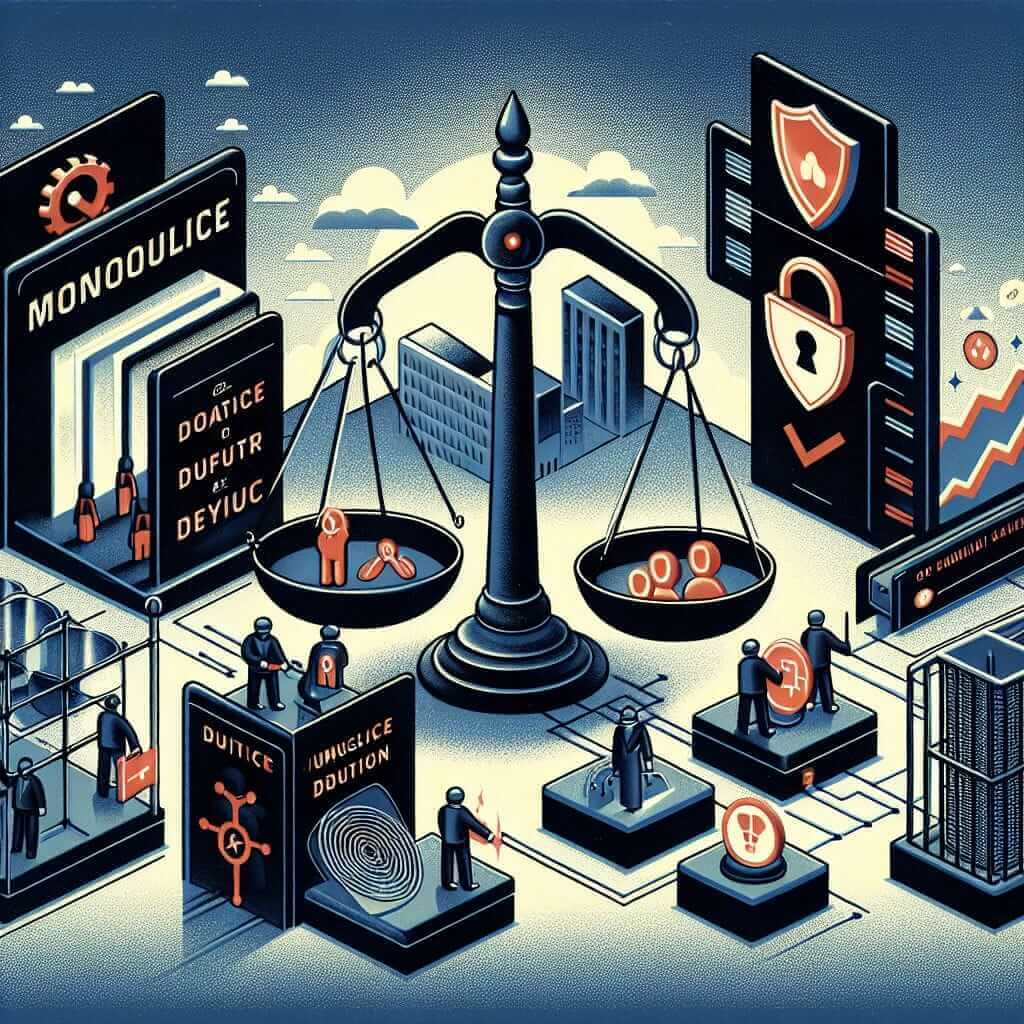Regulating Big Tech companies has become a hot topic in the global political discourse, especially with the increasing influence of these corporations on privacy, economy, and society. The IELTS Reading section often includes passages related to current events and societal issues, making “How are governments regulating big tech companies?” a significant subject to consider for practice. Reflecting on past IELTS exams, this topic has shown up in various contexts, highlighting its relevance and importance.
Reading Passage and Questions
Practice Reading Passage: Level – Medium
Governments around the world have become increasingly concerned about the expansive reach and influence of Big Tech companies. These multinational corporations, including giants like Facebook, Google, Amazon, and Apple, have developed technologies that permeate nearly every facet of modern life.
A major concern for regulators is the monopolistic practices alleged against these tech titans. Antitrust laws in numerous countries are being reassessed and strengthened. In the United States, the Federal Trade Commission has undertaken an extensive review of these companies, while the European Union has fined several for anti-competitive behavior. In addition to antitrust laws, there is an ongoing debate about data privacy. The General Data Protection Regulation (GDPR) implemented by the European Union exemplifies the strict measures being taken.
Furthermore, issues about misinformation and fake news have further compelled governments to intervene. The spread of false information through social media platforms during elections and crises has precipitated calls for tighter control. In countries like India and Australia, legislation has been proposed that obliges companies to take more responsibility for content shared on their platforms.
Nevertheless, not all regulations have been universally accepted. Critics argue that overly stringent regulations could stifle innovation and economic growth. They contend that a balanced approach is required, one that protects consumer interests without compromising the technological advancements that have contributed significantly to modern conveniences and capabilities.
This regulatory environment continues to evolve as policymakers, companies, and consumers grapple with the digital age’s complexities and the ever-growing presence of Big Tech in daily life.
Reading Comprehension Questions
-
Multiple Choice:
According to the passage, which of the following is a major concern for regulators about Big Tech companies?- A. The speed of technological advancement.
- B. The monopolistic practices of these companies.
- C. The lack of investment in new technologies.
- D. The geographical distribution of their headquarters.
-
Identifying Information (True/False/Not Given):
- The European Union has fined several tech companies for anti-competitive behavior. ( )
- The General Data Protection Regulation (GDPR) is an example of the United States’ strict measures against big tech. ( )
- India has introduced laws that compel tech companies to take more responsibility for the content shared on their platforms. ( )
-
Sentence Completion:
- GDPR stands for _____.
- The spread of false information through social media platforms has influenced elections and has precipitated ____.
-
Summary Completion:
Fill in the blanks with no more than two words.
The article discusses how governments are increasingly regulating Big Tech companies due to concerns over their monopolistic practices and issues related to (a)__. The (b) in Europe is particularly highlighted as a measure to combat these concerns.
Answer Key
-
Multiple Choice:
- B. The monopolistic practices of these companies.
-
Identifying Information (True/False/Not Given):
- True
- False
- True
-
Sentence Completion:
- General Data Protection Regulation
- calls for tighter control
-
Summary Completion:
(a) data privacy
(b) GDPR
Lessons Learned
Common Mistakes
- Misinterpreting True/False/Not Given questions: Often, students mistake information that is related but not explicitly stated in the text as ‘True.’ Ensure to base your answers solely on the passage content.
- Guessing on vocabulary: For summary completions or sentence completions, understanding the context is critical. Take the time to infer the correct answers from the passage rather than guessing.
Vocabulary
-
Monopolistic (adj):
- Pronunciation: /məˌnɒpəˈlɪstɪk/
- Meaning: Controlling or dominating an industry or market.
-
Mandate (n):
- Pronunciation: /ˈmændeɪt/
- Meaning: An official order or commission to do something.
-
Stringent (adj):
- Pronunciation: /ˈstrɪndʒənt/
- Meaning: Strict, precise, and exacting.
Grammar
-
Present Perfect Tense:
- Used for actions that have occurred at an unspecified time, or actions that started in the past and continue to the present.
- Example: “Governments have become increasingly concerned about the expansive reach of Big Tech.”
-
Passive Voice:
- Often used in formal writing to emphasize the action rather than the subject.
- Example: “New regulations have been proposed by the government.”
Recommendations for High IELTS Reading Scores
-
Practice Regularly:
- Consistent practice with high-quality reading passages on a variety of topics.
-
Enhance Vocabulary:
- Regularly read academic articles and note unfamiliar words, learning their usage and phonetics.
-
Understand Question Types:
- Familiarize yourself with all question types you might encounter in the IELTS Reading section.
-
Time Management:
- Practice completing passages within the allocated time to improve speed and accuracy.

- Critical Reading Skills:
- Develop the ability to discern the main ideas, supporting details, and author’s viewpoints, which is crucial for effectively answering comprehension questions.